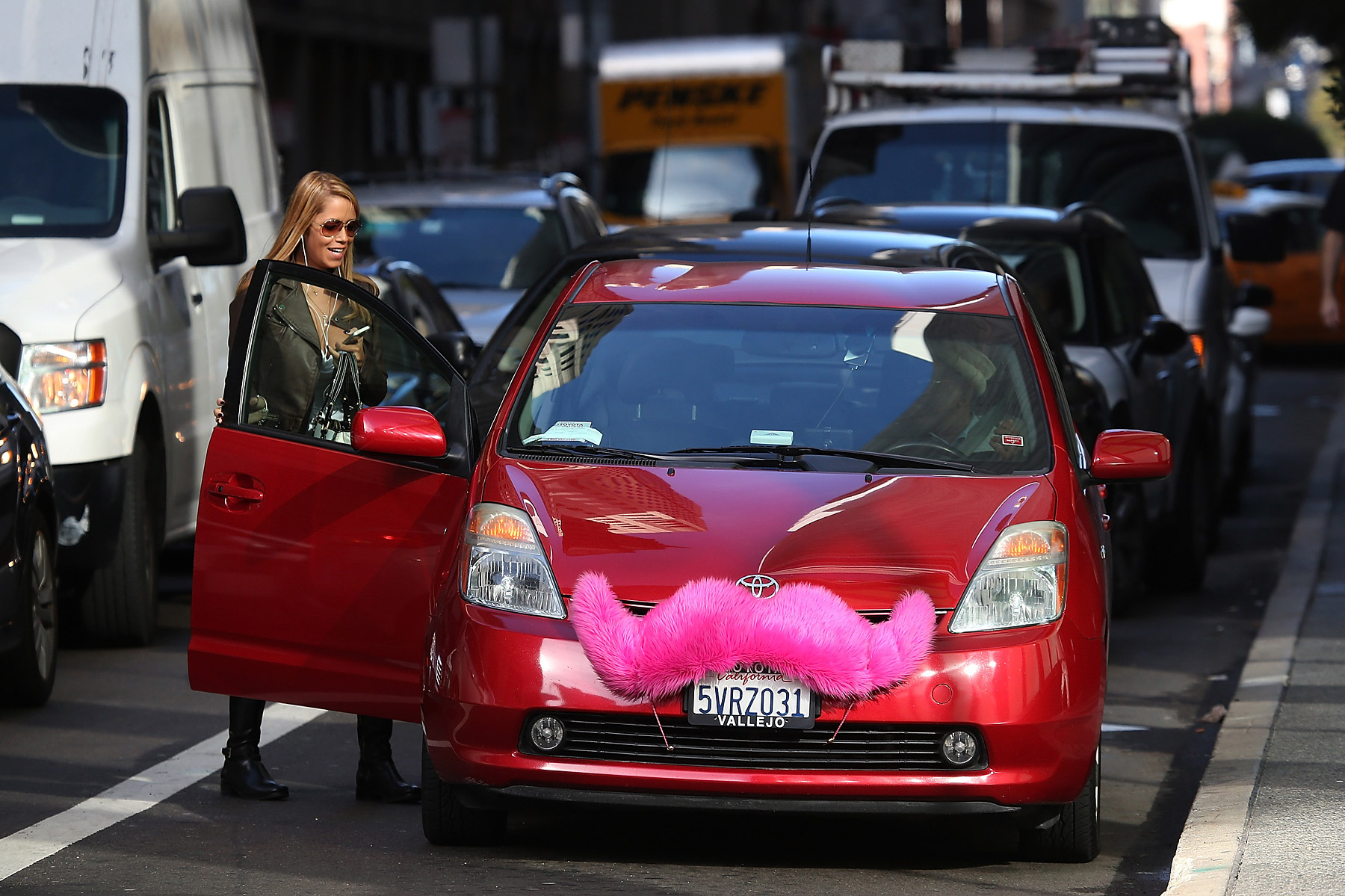
Lyft, the fast-growing, pink-mustachioed San Francisco-based car-sharing service, has raised $250 million in a new round of venture capital funding, the company announced Wednesday. Lyft will use the cash infusion to continue to grow domestically and expand internationally, company co-founder John Zimmer told TIME in an interview.
The new round of funding which was led by New York-based investment firm Coatue Management and joined by Alibaba, the Chinese e-commerce giant. Existing investors Andreessen Horowitz, Founders Fund and Mayfield also participated in the latest round, which brings Lyft’s total venture capital funding to $333 million. Zimmer declined to comment on Lyft’s latest valuation, but a recent report said the company is now worth more than $700 million.
Lyft is a mobile-phone application — available on Apple’s iPhone and Google’s Android devices — that allows riders to “order” a driver to their location in minutes. Since its launch in August of 2012, Lyft’s community of drivers and riders has exploded in popularity. The company, which now has 240 employees, has facilitated over one million rides, Zimmer said, and this week launched in Tampa and Tucson. The service is now available in 30 cities nationwide.
(MORE: Lyft Hits the Gas Pedal in San Francisco)
“It was important for us in this round to ensure that capital would not be a constraint in growing the community,” Zimmer said. “We’re seeing more and more cities saying this is a great way to help build public transportation very quickly.” Zimmer said the company is not planning an initial public offering at this time, but rather is focused on its domestic and international expansion.
The new funding comes as the ride-sharing market is booming, with upstart firms like Lyft, Uber and Sidecar using smart phone technology to provide alternatives to traditional transportation options like taxicabs and rental cars. These services are examples of the emerging “peer-to-peer” economy — which includes Airbnb for lodging and TaskRabbit for everyday chores — in which people connect online to exchange services and get things done.
Lyft’s drivers are regular people with cars who want to make a few bucks by giving someone a ride. All drivers are subjected to DMV and criminal-background checks and are required to undergo in-person interviews, vehicle inspections and a two-hour training session.
Like its rivals Uber and Sidecar, Lyft continues to face legal and regulatory headaches, driven in part by entrenched commercial transportation interests. “Existing industries are really trying to put a stop to this new innovation,” Zimmer said. Several states are considering legislation to regulate companies like Lyft, Uber and Sidecar, and San Antonio police recently sent Lyft a cease-and-desist order, saying the service violates a local ordinance. The city’s police chief says Lyft drivers risk arrest.
Zimmer said Lyft has plans to expand into New York City in the near future, where the company will no doubt face stiff resistance from the taxi industry. “It’s a massive opportunity in a really large market that’s unique from a transportation alternatives perspective,” he said. “There’s a really entrenched existing industry with a lot of money tied up in the medallion system. But this is the year for Lyft in New York.”
More Must-Reads from TIME
- Donald Trump Is TIME's 2024 Person of the Year
- Why We Chose Trump as Person of the Year
- Is Intermittent Fasting Good or Bad for You?
- The 100 Must-Read Books of 2024
- The 20 Best Christmas TV Episodes
- Column: If Optimism Feels Ridiculous Now, Try Hope
- The Future of Climate Action Is Trade Policy
- Merle Bombardieri Is Helping People Make the Baby Decision
Contact us at letters@time.com